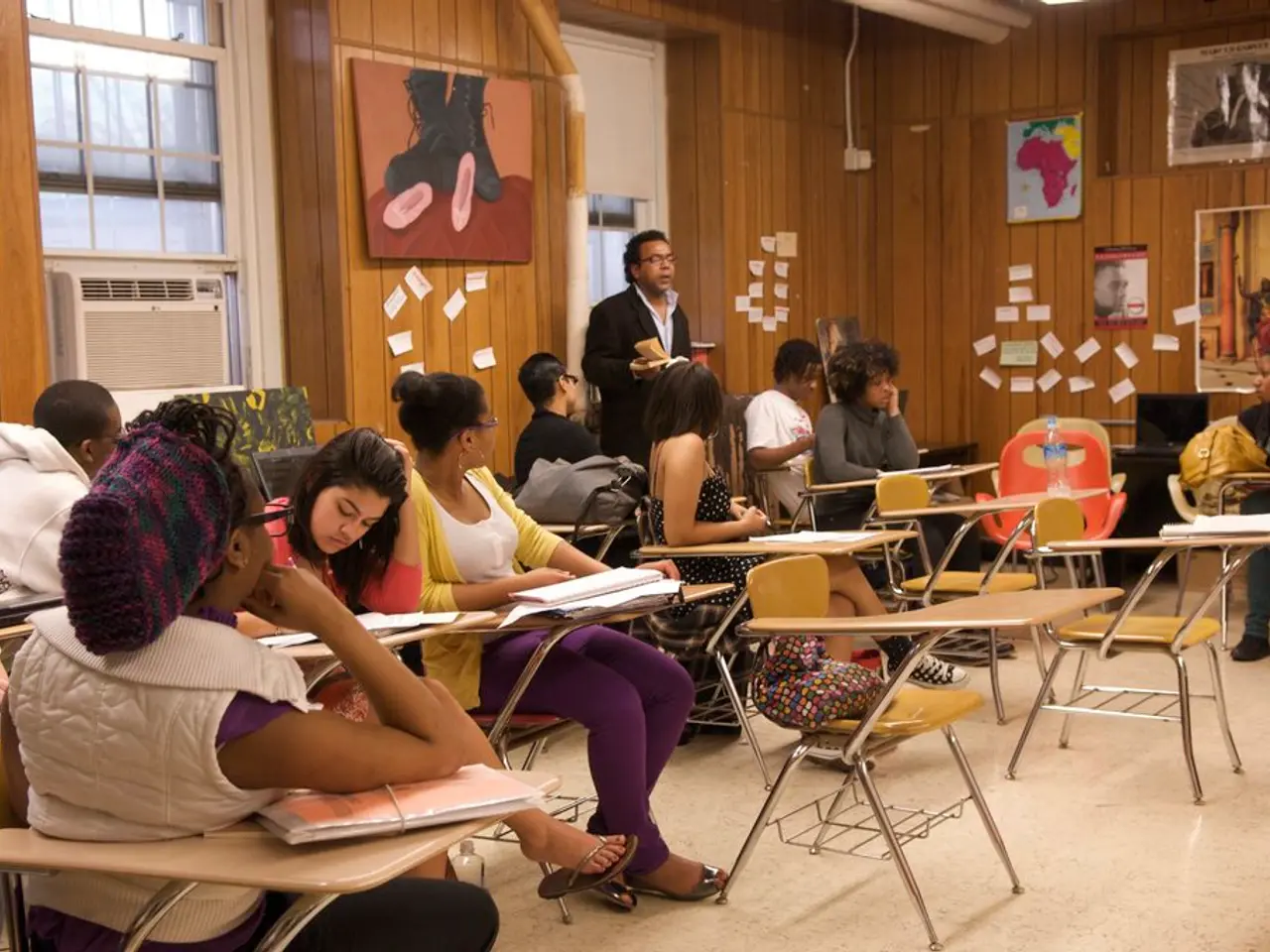Importance of Motivation in Achieving and Succeeding in Life
In the realm of education, motivation plays a pivotal role in shaping students' attitudes and behaviors towards learning. It influences goal-setting, resilience, and self-efficacy, ultimately impacting student achievement.
To enhance motivation within educational settings, educators can employ a multitude of strategies. One such approach is to create a supportive and inclusive learning environment, offering emotional, psychological, and physical safety. This, in turn, increases students' intrinsic motivation and engagement, leading to better attendance and participation.
Another effective strategy is to encourage autonomy and choice in learning. Allowing students to make meaningful choices about their learning fosters a sense of ownership and self-direction, which enhances intrinsic motivation and deeper engagement with material.
Connecting lessons to students’ personal experiences and interests is another key method. Making learning relevant and meaningful helps ignite intrinsic motivation by linking content to students’ real lives and future goals.
Fostering a growth mindset is also crucial. Encouraging students to see challenges as opportunities for improvement, rather than failures, promotes persistence, resilience, and a willingness to engage deeply with difficult material.
Building resilience and grit is essential to sustain motivation over time, especially during setbacks. Helping students develop perseverance contributes to long-term academic success.
Student-centered approaches that build competence and mastery, rather than relying on extrinsic rewards, are also important. Intrinsic motivation supports critical thinking, self-regulation, and long-term learning, whereas extrinsic motivation can lead to only short-term, surface-level engagement.
Promoting collaborative learning and strong teacher-student relationships further enhances motivation. Peer support and positive relationships provide social and emotional encouragement, bolstering students' motivation.
Establishing schoolwide and classroom conditions emphasizing academic rigor, empowerment, and self-regulation creates a culture that values student engagement and intrinsic motivation.
In summary, effective enhancement of intrinsic motivation in education largely focuses on fostering autonomy, relevance, supportive relationships, and growth-oriented mindsets that empower students to engage deeply and persistently in their learning. This approach leads to greater self-regulation, critical thinking, and sustained academic achievement.
Observing classroom behaviors to identify levels of engagement and motivation among students, conducting personal interviews, and regularly administering surveys to track changes in motivation levels are also essential components in understanding and boosting student motivation.
The relationship between motivation and engagement creates a dynamic cycle within educational settings, with motivated students being more likely to engage, and their engagement further bolstering their motivation. Understanding motivation involves examining various theories, such as Self-Determination Theory, Maslow's Hierarchy of Needs, and Deci and Ryan's Self-Determination Theory.
Lack of motivation can diminish engagement and lead to disengagement, causing students to withdraw from educational opportunities. Effective engagement leads to improved academic outcomes, including higher grades, test scores, and an overall enhanced learning experience.
Intrinsically motivated students tend to engage more deeply with their studies, persist through challenges, and embrace collaborative learning experiences. Intrinsic motivation, driven by personal interest in the subject, and extrinsic motivation, fueled by external rewards, play significant roles in shaping students' educational experiences.
Sources:
[1] Pink, D. H. (2009). Drive: The surprising truth about what motivates us. Riverhead Books.
[2] Ryan, R. M., & Deci, E. L. (2000). Self-determination theory and the facilitation of intrinsic motivation, social development, and well-being. American Psychologist, 55(1), 68-78.
[3] Csikszentmihalyi, M. (1993). Flow: The psychology of optimal experience. HarperPerennial.
[4] Dweck, C. S. (2006). Mindset: The new psychology of success. Ballantine Books.
[5] Zimmerman, B. J. (2000). Academic self-regulation: A social cognitive perspective. Educational Psychologist, 35(1), 3-18.
Read also:
- Dual-function mattress offers both cooling and coziness at an affordable price.
- Krafton countersues Unknown Worlds, asserting that Subnautica 2 posed a threat of significant damage to their entire franchise, similar to the potential harm Kerbal Space Program 2 supposedly inflicted.
- Title Transformation: Utilizing the Shifting Dynamics of British Politics, Bernie Sanders' Potential Advantage
- Ontario falls short by a small margin in delivering the goal of four hours daily care for long-term care residents.




